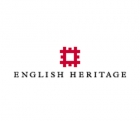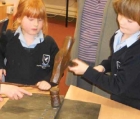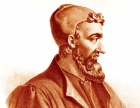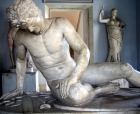Whole School
As part of a broad and balanced curriculum, history should find a place at the heart of school life, providing enrichment through trips and projects, through cross-curricular links and through whole school activities such as assemblies. In this section you will find resources and guidance to ensure history enjoys a high profile across the whole school.
-

Diogenes: Creativity and the Primary Curriculum
ArticleClick to view -

The Interactive Whiteboard or Smart Board
ArticleClick to view -

History, ICT and the digital age
ArticleClick to view -

The digital revolution
ArticleClick to view -

Chronology through ICT
ArticleClick to view -

Bring on the iPad revolution
ArticleClick to view -

Case Study: Historical information and the local community
ArticleClick to view -

English Heritage's Heritage Explorer
ArticleClick to view -

Museums: Entries to Learning
ArticleClick to view -

Time, Chronology, language and story
ArticleClick to view -

Progression and coherence in history
ArticleClick to view -

Planning for history - the coordinator's perspective
ArticleClick to view -

History and the curriculum
ArticleClick to view -

Using classic fiction to support the study of childhood in Victorian times
ArticleClick to view -

Doing history in the early years and foundation stage
ArticleClick to view -

A history of the world - 100 objects that tell a story
ArticleClick to view -

Success with primary history: overcoming the challenges
ArticleClick to view

